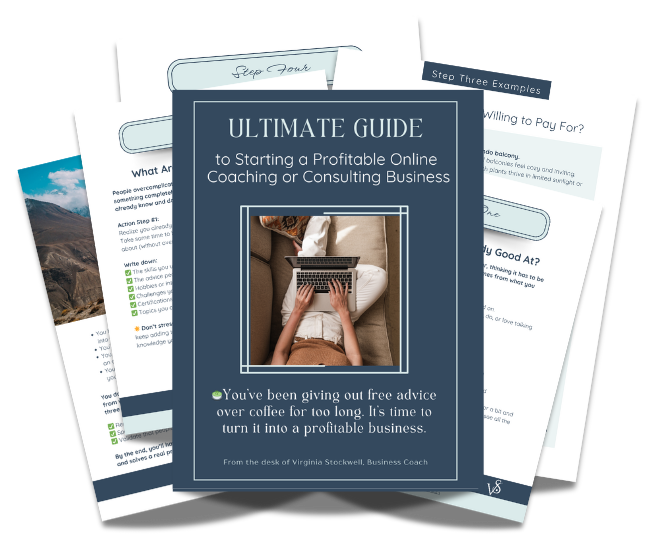Should I quit and go full-time or side hustle Business Consulting?

Deciding to transition from a full-time job to becoming a business consultant is a significant decision that depends on various factors, including your financial situation, level of experience, and risk tolerance.
Here are some considerations to help you decide whether to start as a part-time consultant or make the leap to full-time:
Starting as a Part-Time Consultant:
Pros:
-
Financial Stability:
- Starting part-time allows you to maintain a steady income from your current job while building your consulting business. This can provide financial stability during the initial stages.
-
Risk Mitigation:
- By keeping your current job, you mitigate the financial risks associated with starting a new venture. This allows you to test the waters and assess the viability of consulting without the immediate pressure to generate a full-time income.
-
Learning Curve:
- Part-time consulting allows you to ease into the role, gaining valuable experience and learning from your initial engagements without being overwhelmed.
-
Build a Client Base:
- You can gradually build a client base and establish a reputation as a consultant while still benefiting from the security of your current job.
Cons:
-
Limited Time and Focus:
- Balancing a full-time job and part-time consulting may limit the time and energy you can dedicate to growing your consulting business. It may take longer to see significant progress.
-
Slower Business Growth:
- Your consulting business may grow more slowly compared to if you were working on it full-time. This could impact your ability to scale quickly.
Going Full-Time as a Business Consultant:
Pros:
-
Full-Time Commitment:
- Going full-time allows you to fully commit to building your consulting business, dedicating more time and energy to client acquisition, marketing, and business development.
-
Faster Business Growth:
- With a full-time focus, you may be able to grow your consulting business more quickly, attract larger clients, and take on more projects.
-
Increased Flexibility:
- Being your own boss full-time provides greater flexibility in terms of setting your own schedule, choosing clients, and shaping your business strategy.
Cons:
-
Financial Risk:
- Quitting your job means relying solely on your consulting income, which can be unpredictable in the early stages. Financial risks are higher, and it may take time before you achieve a consistent income stream.
-
Learning Curve Pressure:
- The learning curve for entrepreneurship can be steep, and going full-time means facing this curve head-on. You need to adapt quickly to the challenges of running a business.
-
Potential Income Gap:
- There may be a period where your consulting income doesn't match your previous salary. Be prepared for a potential income gap and have savings or a financial cushion to support you during this transition.
Key Considerations:
-
Financial Preparedness:
- Assess your financial situation. Ensure you have savings to cover personal and business expenses during the initial months of full-time consulting.
-
Client Pipeline:
- Evaluate the potential client pipeline and demand for your consulting services. Having a clear understanding of your market can help you make an informed decision.
-
Risk Tolerance:
- Consider your risk tolerance and willingness to embrace uncertainty. Starting part-time may be a more conservative approach, while going full-time requires a higher tolerance for financial risk.
-
Skills and Experience:
- Assess your skills and experience in your consulting niche. The more expertise you have, the more confident you may feel about going full-time.
-
Business Plan:
- Develop a detailed business plan outlining your goals, target clients, marketing strategy, and financial projections. This plan will guide your decision and serve as a roadmap for your consulting business.
Ultimately, the decision to start as a part-time or full-time consultant depends on your individual circumstances, goals, and preferences.
Some consultants find success starting part-time and gradually transitioning, while others thrive by fully committing to their consulting business from the outset.
Whichever path you choose, thorough planning and preparation are key to a successful transition.

